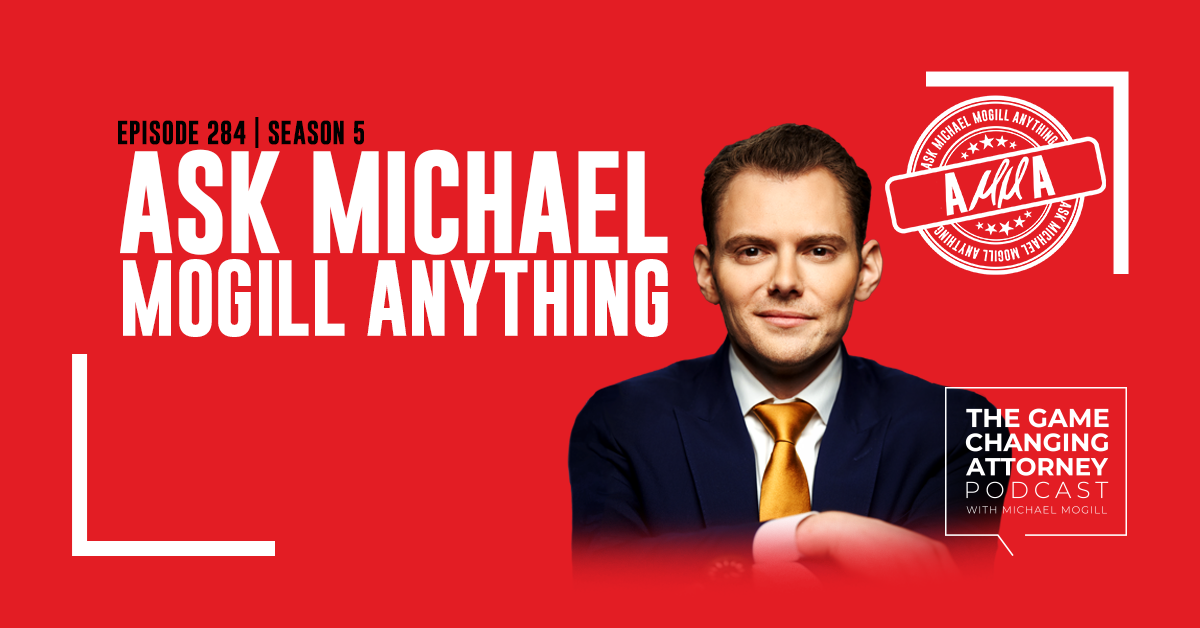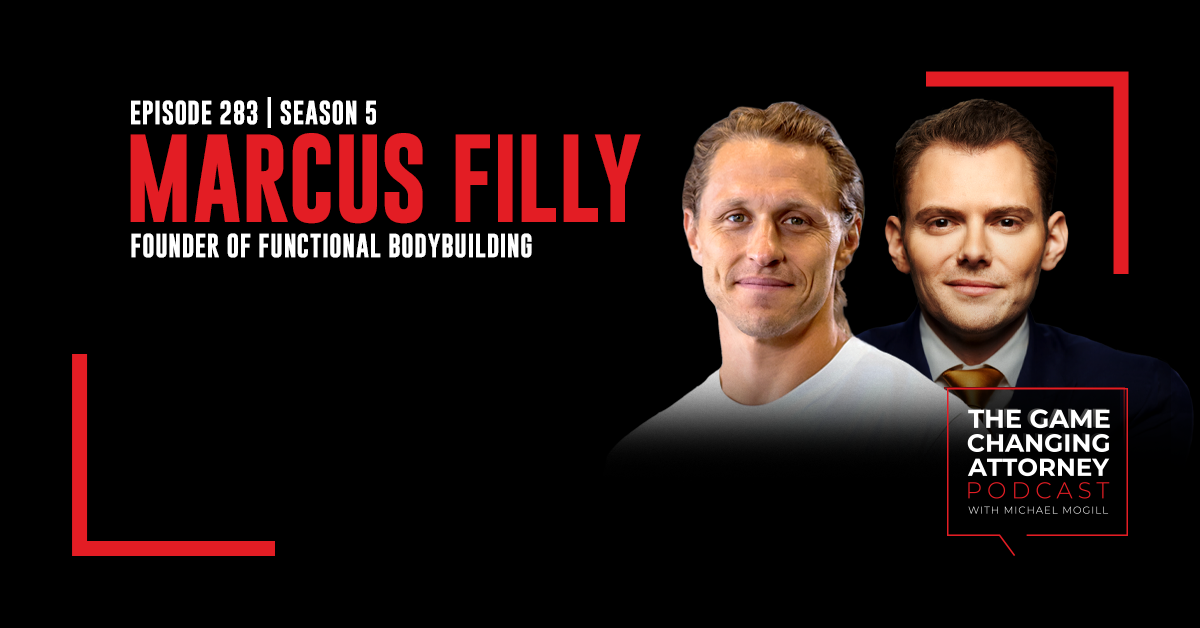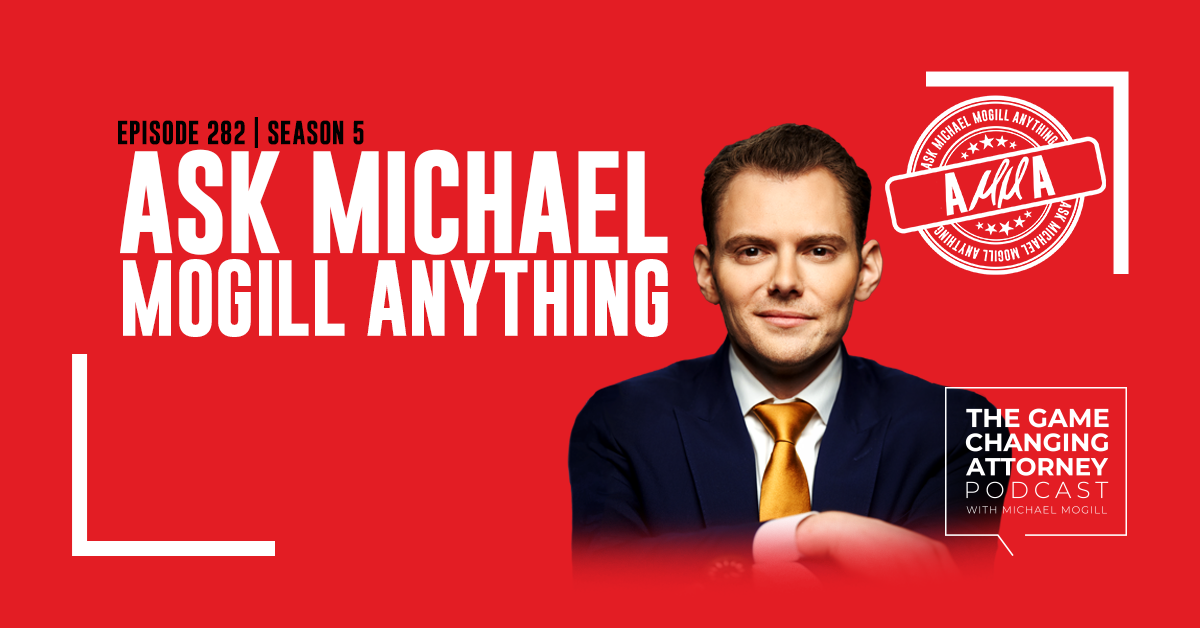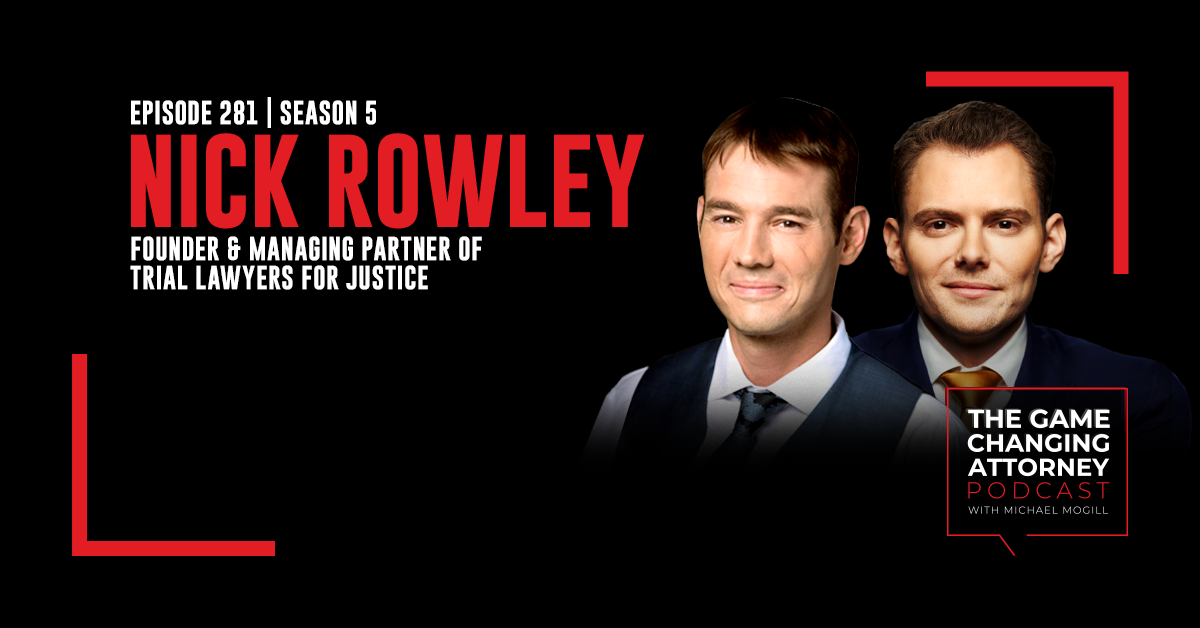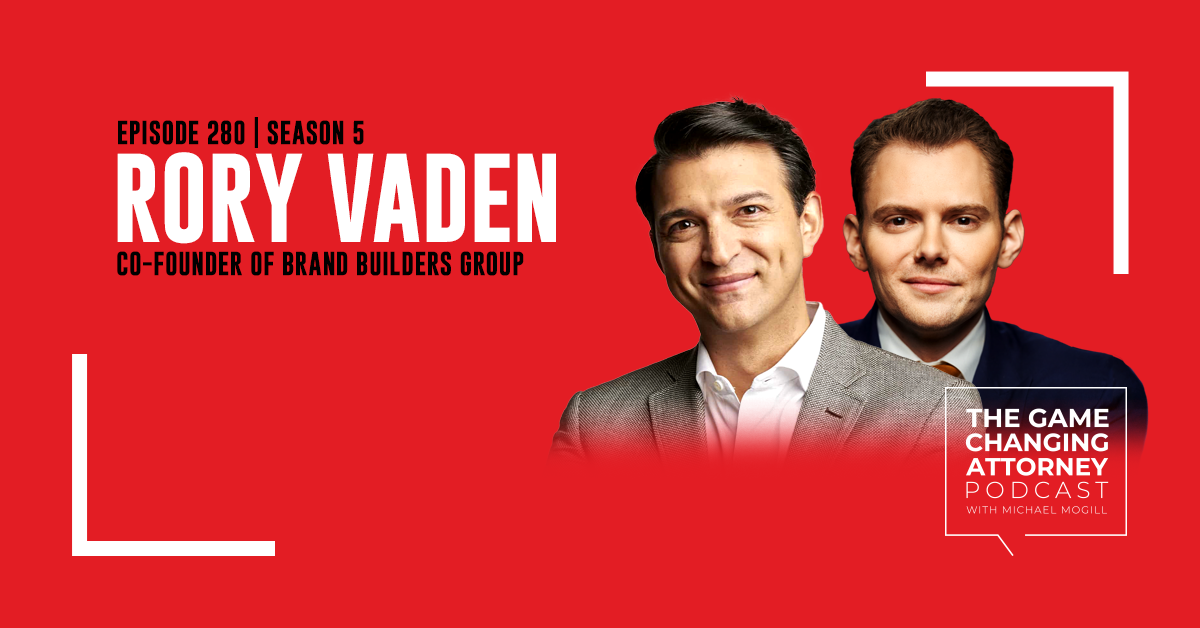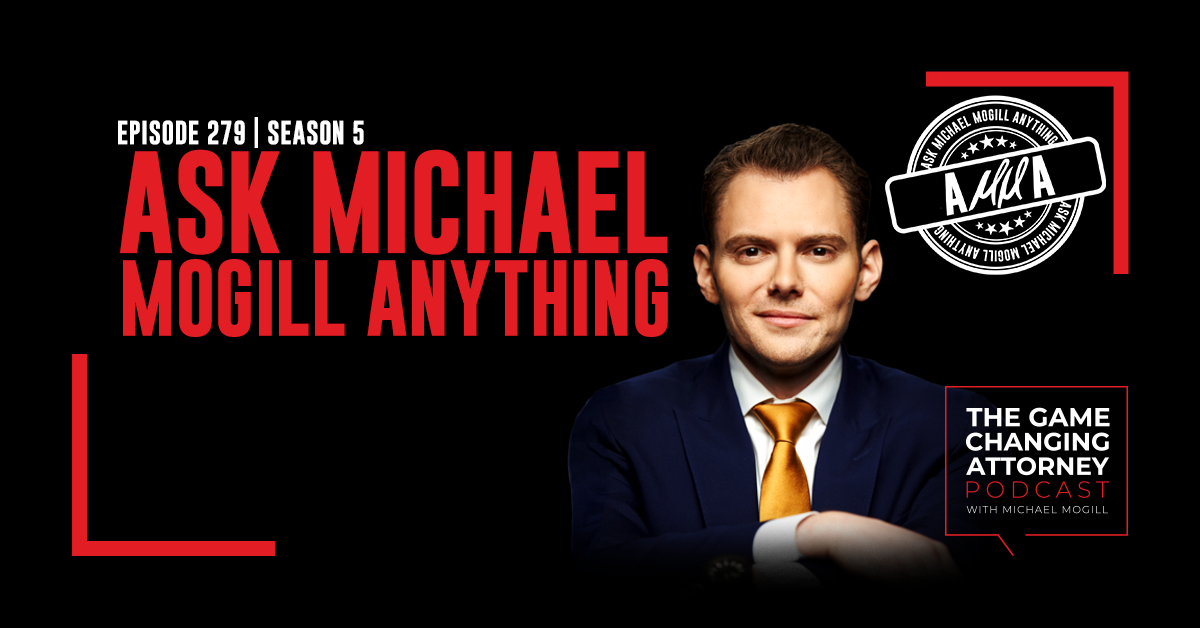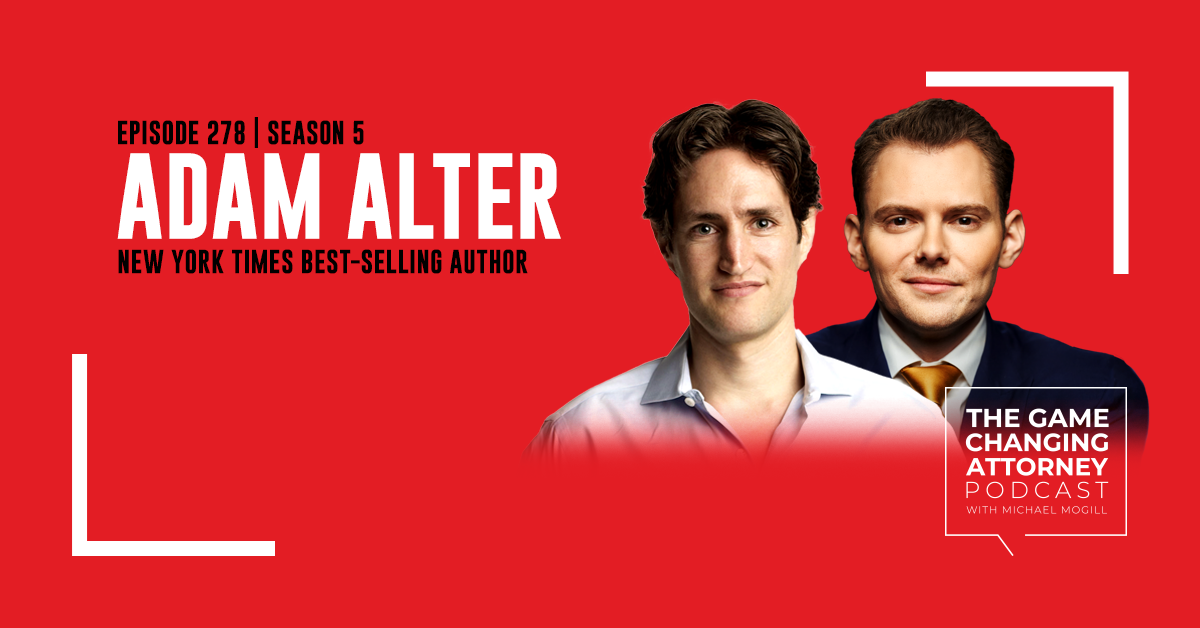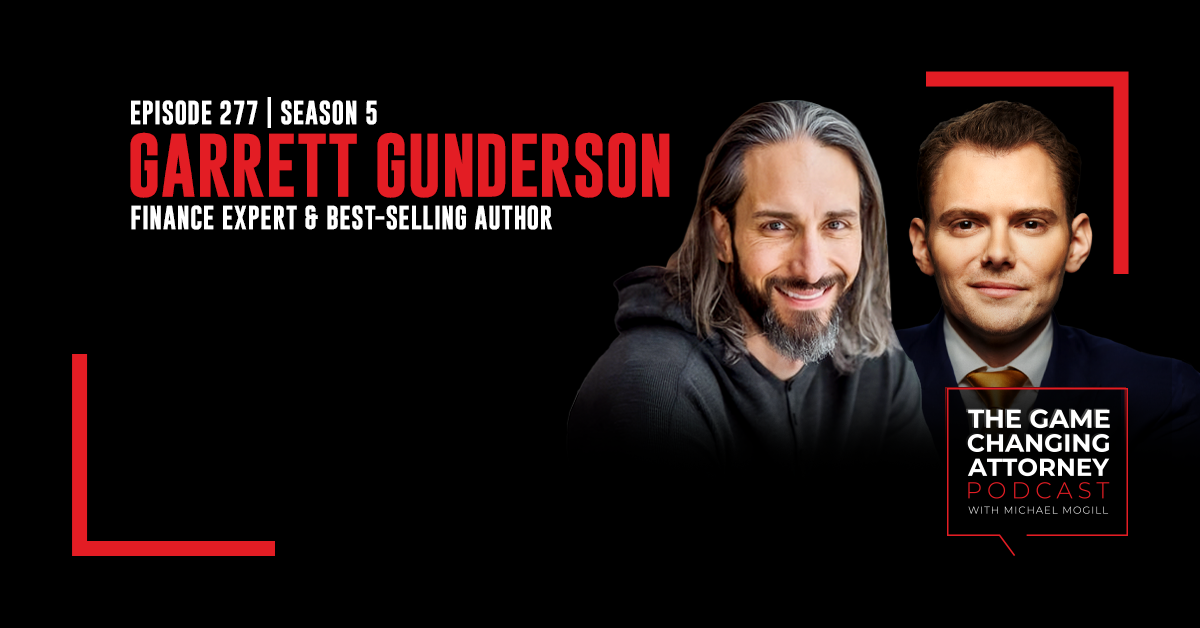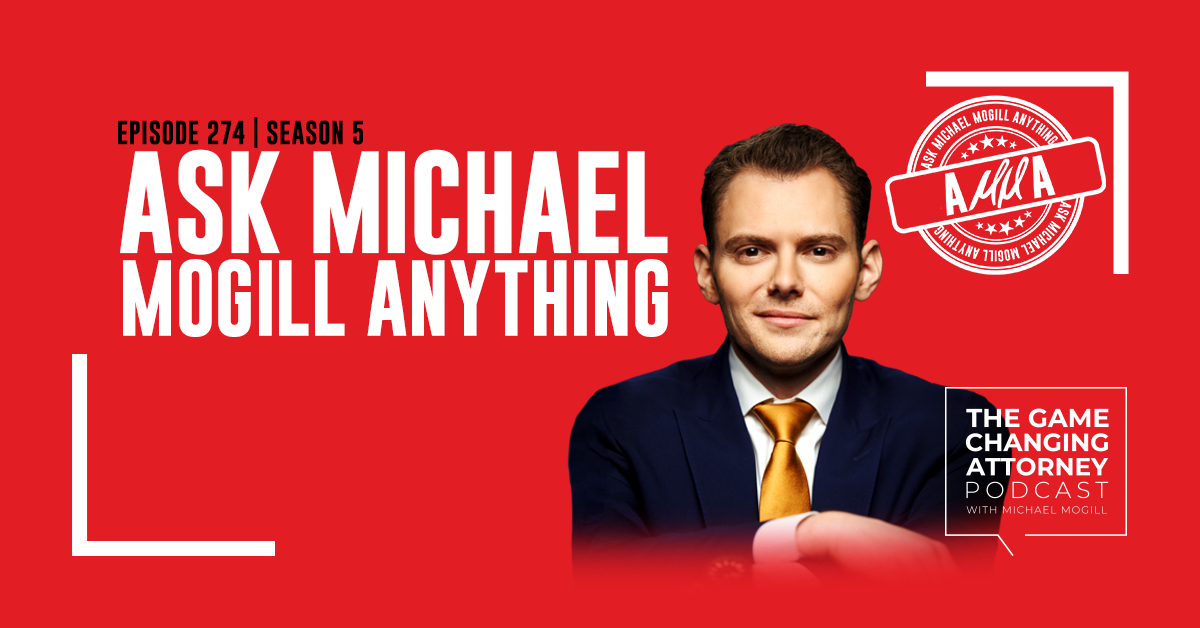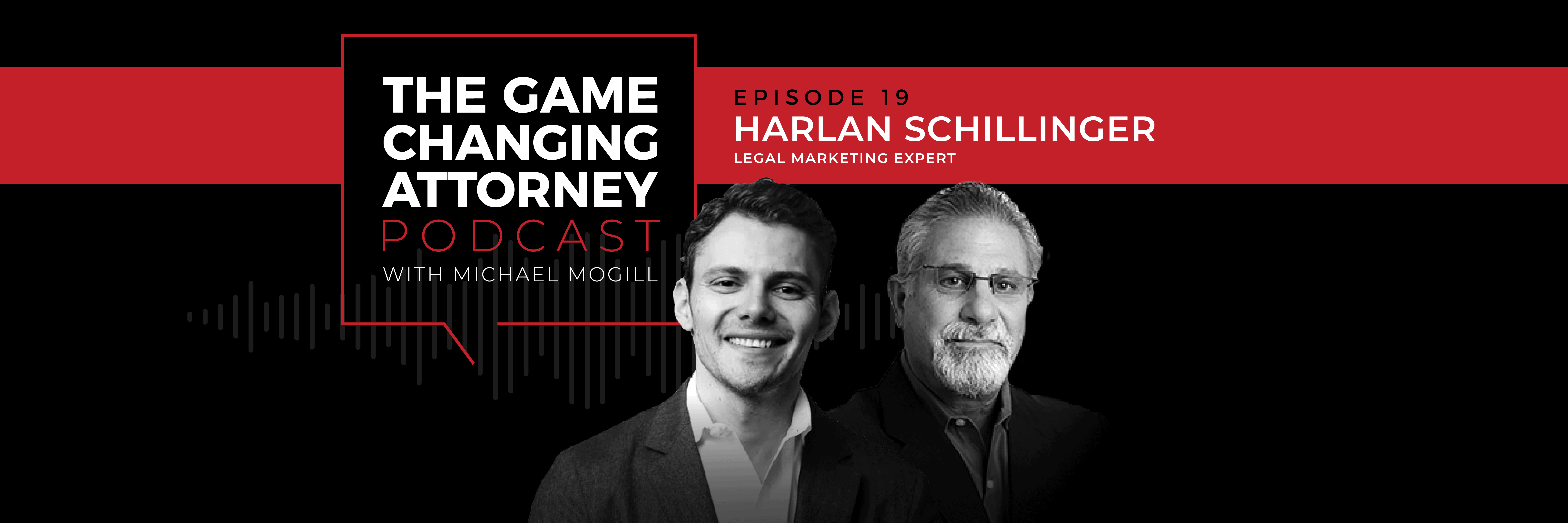
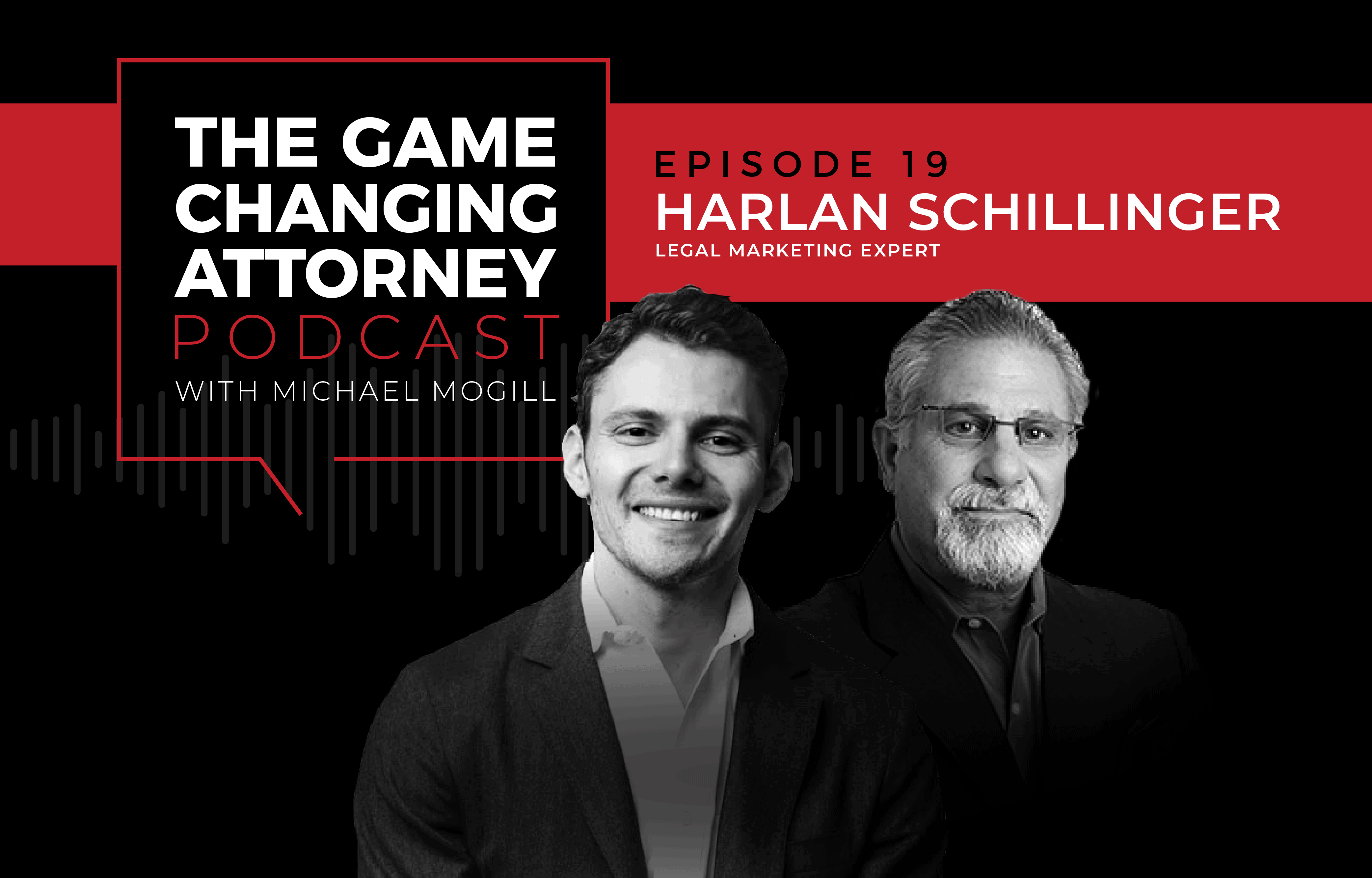
EPISODE 19 — Harlan Schillinger — The Future of Legal Marketing
Legal industry veteran Harlan Schillinger has weathered more than a few market downturns, and he believes right now is a fertile ground for great growth. His advice? Don’t panic — get crystal clear.
On this episode of The Game Changing Attorney Podcast, Harlan and Crisp Founder & CEO Michael Mogill sit down for a reflective conversation on:
- Why there’s no substitute for focusing on your firm as a business
- The #1 reason attorneys MUST get over their social media phobia
- The power of reputation and word-of-mouth
- and much more!
Harlan explains what law firms need to be doing now to thrive, from hacking your internal processes to kickstarting your cash flow and settling cases in the most productive, absolute manner. Listen closely to this episode — or get left behind as the industry moves forward without you.
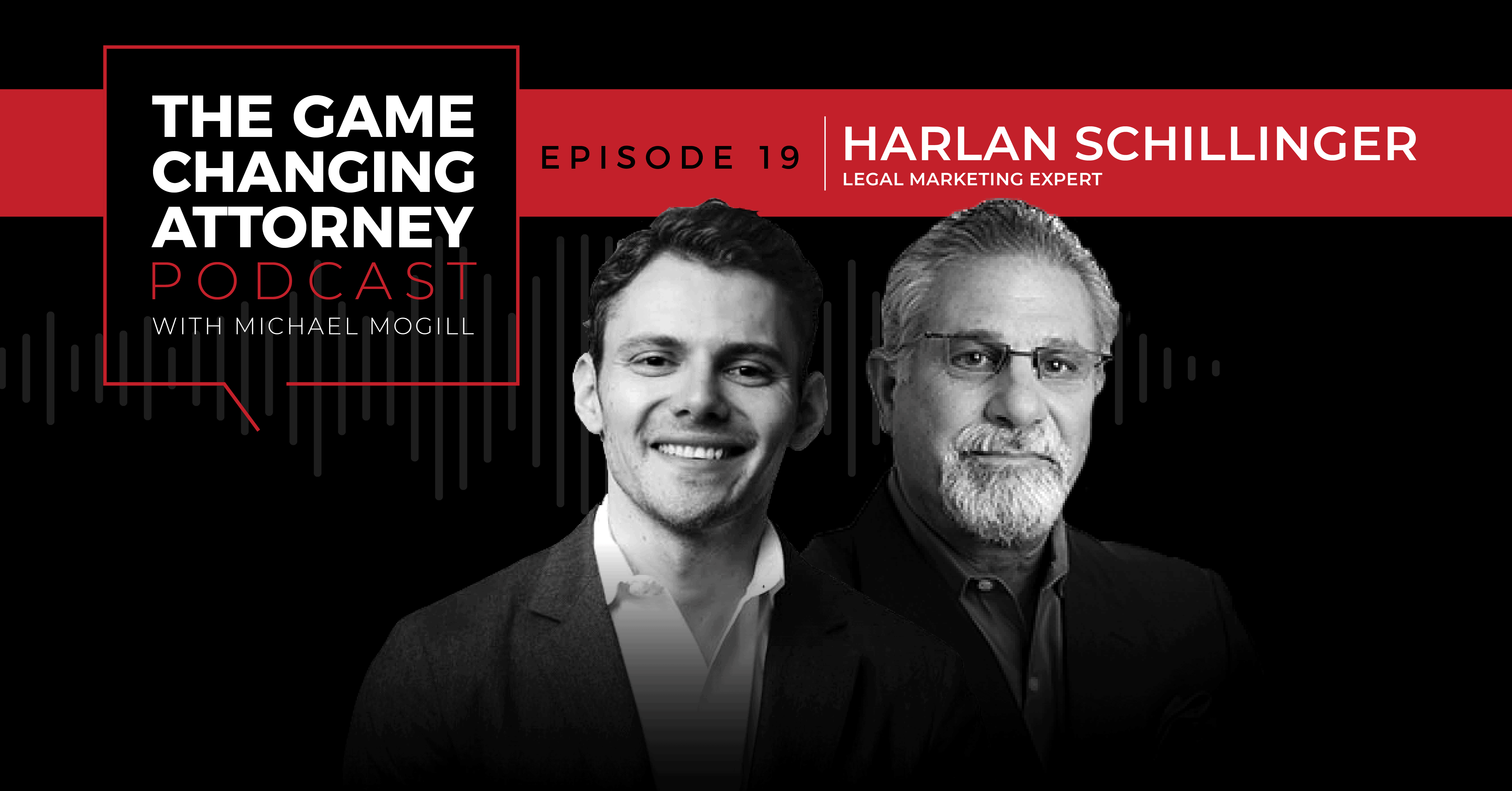
Listen & Subscribe
Show Notes:
3:16 – Common sense will rule. “I’m taking the approach with my clients — I’m suggesting that we all stay calm, which is easy to say, right? But we use common sense. We have to evaluate the market on a day-to-day basis. What we do know is that traffic is down, so accidents are going to be down. What we do know is that we’re getting confusing information. So let’s really deal with what we do know and what we shouldn’t do. And that’s how I really tried to break all that down. Common sense really falls into marketing because all of this has to do with marketing and has to do with how you bring your staff back into the office. Obviously we’re in unprecedented times, but common sense will rule.”
4:12 – Shift your focus. “Focus on your businesses and understanding what that means — that means deal with upgrading, looking at, and understanding your processes. Getting back into cash flow, focus on settling cases in the most productive, absolute manner. Don’t give up on cases, you know, for quick settlements. Be very vigilant. And at the same time, pay particular attention to what intake is coming in.”
8:22 – Teamwork makes the dream work. “You’ve got to have a plan, and the plan isn’t in your head. The plan is on paper. The plan is put together in your office with people that will execute the plan. Make them part of the solution. Don’t throw it at somebody and say, ‘Let’s do this. Let’s do that.’ Pull your team together. Pull your key people together. Have them come up with what needs to be done, and it’ll take a lot of stress off of you. Most importantly, I believe you’ll move the issues down the road much, much better. You’re not going to ever win a Super Bowl unless you have a great team, and they all have to work together. You’ve heard me talk about that many times. You got to have all the right players in place to win.”
9:37 – The business of law. “I remember when we started the National Trial Lawyers, we wanted to fill a void because we recognize that running a law firm is business. It’s the business of law. You know, I quoted my dear friend Howard Nations — who’s a phenomenal lawyer like John Romano or Keith Givens — and they understand how to practice law, but if they didn’t have good business practices, they would not be in business today. And you know, they’re tremendous mentors. They are phenomenal lawyers. How you run the business will keep you in business.”
12:48 – No intention of slowing down. “I didn’t retire. I orchestrated my retirement with my associates at my agency, because I felt that was the proper thing to do. I was retired for about 30 seconds, literally. I am as busy now as I have ever been. I’m just doing some different things. I don’t miss the agency — I don’t miss people sitting in front of me telling me, ‘Can I tell you the truth?’ or you know, coming in without a solution, or what have you. So I just switch gears, so let’s get that off the table. I quit. I didn’t retire.”
13:45 – A day in the life of a strategist. “I work with seven or eight private clients. I’m a strategist. I keep them out of trouble. I help them with their vendors. I help them with every single situation that comes up that needs a second opinion — which is just about everything — and I’m thriving and my clients are thriving, you know, based on that relationship. I am not married to a vendor. I’m married to my client. Do we know the vendor world? Absolutely. Can I talk their language? Apparently I can. So that’s the role that I’m filling, and I encourage other people to. It’s a wide open opportunity to take that kind of an advisory position with people.”
14:49 – What is branding? “Branding is what people think of you when you’re out of the room. That’s character — character is what people think of you when you’re out of the room. If you think of it in any other terms, you’re not thinking straight. Brand is what pops into your mind, what you immediately have an identification to.”
17:02 – Credibility is everything. “What a consumer has to understand very quickly about a brand is the credibility of the brand. Credibility is everything. You can advertise car wrecks all day long, but that doesn’t equate to catastrophic injuries. That doesn’t equate to, you know, serious accidents. And if you’re going to say, ‘I’m the car wreck guy,’ that’s a brand, but that’s a Walmart brand to me. Walmart is one of the most successful businesses in the world, so there’s nothing wrong with that, but if you’re going to try to attract substantial cases — everybody wants a serious case. You have to have that credibility to be able to attract people and they have to recognize it very quickly — within seconds.”
22:26 – It’s not all about leads. “You know, nine out of 10 lawyers, when they come into the office, the very first thing they ask when they ask about intake is not how many calls we got, but how many cases we signed up. Very, very few times does anybody say how many calls did we get. And then the breakdown is how many calls we got that were pertinent, how many calls are the wanted calls, and all of that. That all that should be recognized before you say, ‘Well, how many cases did I sign up?’ because if you’re only looking at what I signed up, you’re missing that whole spectrum of opportunity that’s in front of you. If you’re arrogant enough to say, ‘I get whatever I want. I get 94% of everybody I want,’ this conversation is not for you. Keep doing what you’re doing — I’d rather educate your competitor.”
24:08 – Harlan’s main strategy. “The backbone of my theory, the backbone that I have stuck to, my strategy is that you talk to the public the same way you would a jury. When you talk to a jury, you’re asking for a million dollars. You’re asking for $5 million. You’re not asking for $5,500. That’s how I believe that you should advertise. You get what you ask for.”
26:49 – Referrals are indispensable. “Foster your referral business. You will be amazed at what comes from word of mouth. It doesn’t just happen, and it doesn’t happen by just having a good outcome. It happens because you’re continually marketing to those people. The message has to be compassion — not hounding somebody saying, ‘I did a great job for you. Send me out more business.’ It’s keeping yourself in front of people in an intelligent and strategic way. What’s the message? Thank you. It’s keeping in touch with people. That is a strategic maneuver that you can do to get great cases.”
28:29 – Early adopters always win. “If you’re trying to reach people today with the same message that you tried to reach with them 10 years ago, you’re going to be successful but your business is going to grow in the manner that it did 10 years ago. There are just too many outlets, you know? The thing that I see real winners embrace is they’re early adopters of technology, of social media. You know, early adopters on the internet. They got in, they understood it, and they didn’t have to play catch up.”
30:19 – Social media is here to stay. “Social media, first of all, is new. It’s only how many years old? We’re all learning our way through it. You know, the first thing I can tell you about social media is that it’s social — it’s not transactional. You’re not selling a widget. You’re selling a personality and you’re selling credibility, as well as you selling your culture or your brand. And so you have to really understand it. But social media is here to stay. It’s not going anywhere.”
33:04 – Advertising is not an exact formula. “When you’re doing multi-channel marketing — which is, let’s say television, social media, and PPC — you cannot measure it. It is almost impossible to measure exactly where that client has come from, and that discourages people because they all want to know an exact number, but it ain’t happening anymore that way. It’s just not happening. The worst question you could possibly ask in intake is, ‘How did you hear about us?’ They may have been on the internet, and that may be because something else drove them there. But if you’re going to go into advertising, and you only want an ROI on the dollar that you spent, you’re going to be a very disgruntled advertiser.”
35:51 – The secret to marketing success. “I think your core business has to be that you have to be excellent lawyers and excellent people and treat people the way you want to be treated. And then, unless you market your practice and understand the electronic aspect of it — the digital aspect of it — I think you’re sunk. You know, most people don’t understand the digital. They’re afraid of it. They don’t know how to pick vendors. But it’s going to take a little, you know, a lot of homework. I think you have to follow the way people consume information, and you have to take time to figure out how your client or how your prospective client is consuming information to go down that path.”
37:16 – Choosing the right partners. “Don’t hire somebody because your friend uses them or you heard that they do a good job. Your business is unique, you’re unique, and you have to find a resource. I’d rather call the partners and vendors that you hook up with that have the same philosophy. You’ve got to ask a lot of questions. Take your time when you’re shopping and looking, but I would eliminate vendors or partners that don’t have the same culture.”
40:56 – What does being a game changer mean to you? “It means literally that — changing the game, changing the way you’re doing things, changing the way you’re thinking, or adapting to new opportunities. I think game changing means understanding flexibility, having a strategy, and doing the opposite of everybody else. That’s how you change the game. So if you’re going to use the word ‘game changing,’ use it correctly. You’re changing the game, you’re changing the process, you’re changing your thinking. Make sure you use it correctly. They are very powerful words.”
EPISODE RESOURCES
Centers for Disease Control (CDC)
The National Trial Lawyers
Howard Nations
Keith Givens
Mark Lanier
John Romano
J. Walter Thompson
Connect with Michael
- Text directly at 404-531-7691
